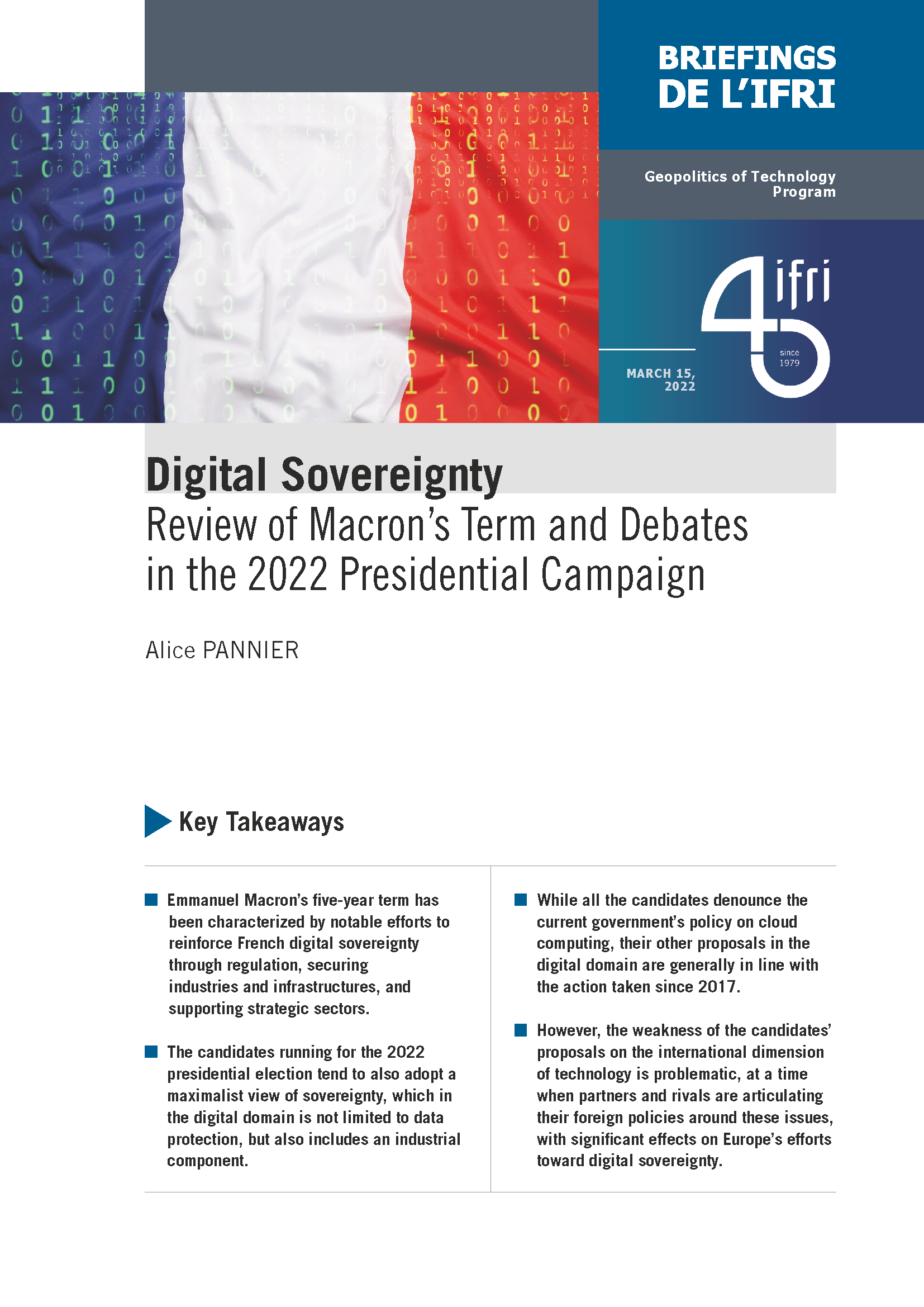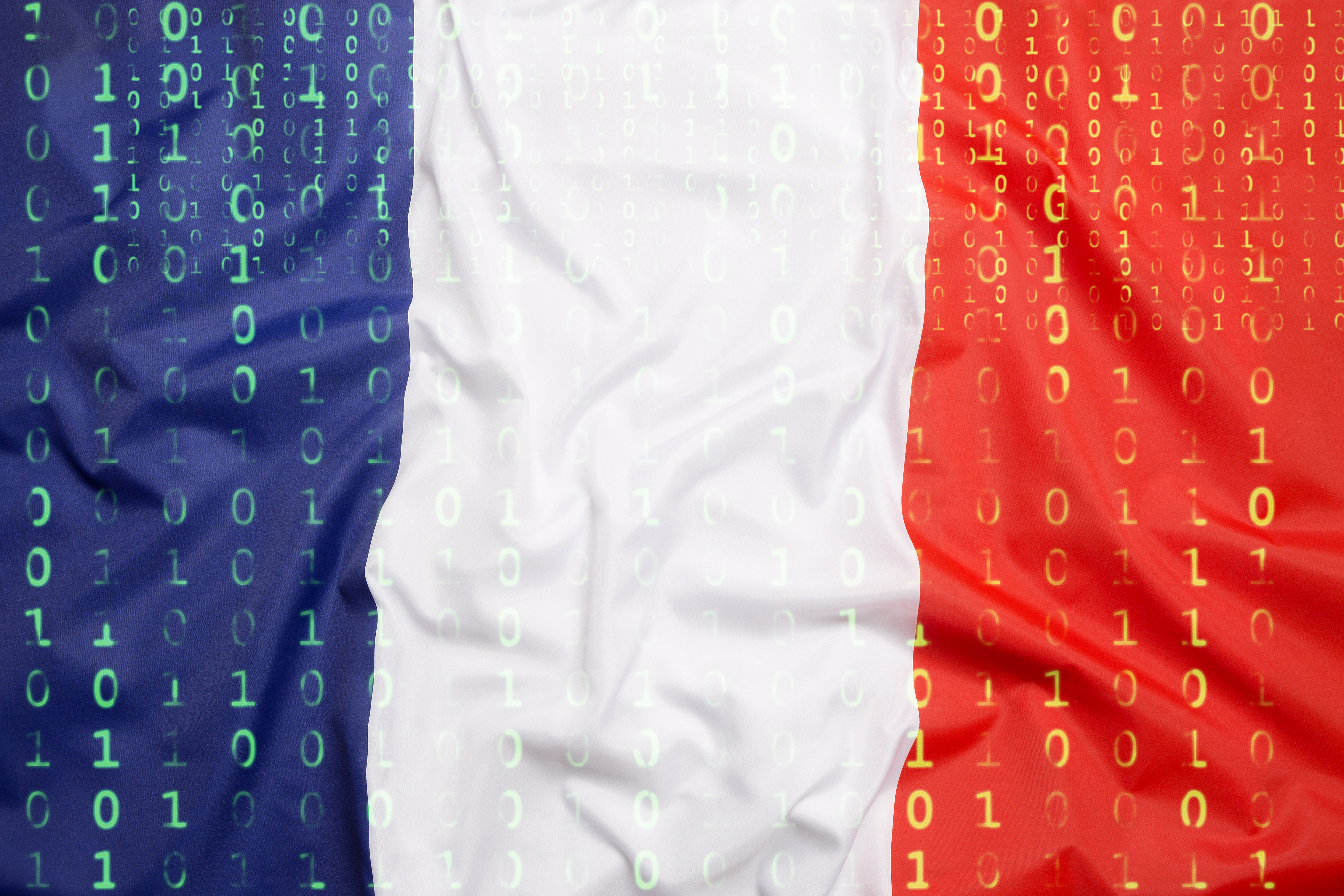Digital Sovereignty Review of Macron’s Term and Debates in the 2022 Presidential Campaign

One month before the French presidential election, this briefing assesses the actions undertaken during Macron's term as well as the presidential candidates' proposals concerning France's digital sovereignty.

Key Takeaways
- Emmanuel Macron’s five-year term has been characterized by notable efforts to reinforce French digital sovereignty through regulation, securing industries and infrastructures, and supporting strategic sectors.
- The candidates running for the 2022 presidential election tend to also adopt a maximalist view of sovereignty, which in the digital domain is not limited to data protection, but also includes an industrial component.
- While all the candidates denounce the current government’s policy on cloud computing, their other proposals in the digital domain are generally in line with the action taken since 2017.
- However, the weakness of the candidates’ proposals on the international dimension of technology is problematic, at a time when partners and rivals are articulating their foreign policies around these issues, with significant effects on Europe’s efforts toward digital sovereignty.

Available in:
Regions and themes
ISBN / ISSN
Share
Download the full analysis
This page contains only a summary of our work. If you would like to have access to all the information from our research on the subject, you can download the full version in PDF format.
Digital Sovereignty Review of Macron’s Term and Debates in the 2022 Presidential Campaign
Related centers and programs
Discover our other research centers and programsFind out more
Discover all our analysesAI, Data Centers and Energy Demand: Reassessing and Exploring the Trends
The information and communication technologies sector today accounts for 9% of global electricity consumption, data centers for 1-1.3%, and artificial intelligence (AI) for less than 0.2%. The growing energy demands of cloud services first, and now AI workloads (10% of today’s data centers electricity demand), have exacerbated this trend. In the future, hyperscale data centers will gain shares amongst all kinds of data centers and AI will probably account for around 20% of data centers electricity demand by 2030.
From nonproliferation to strategic competition: US export controls and China
Technological competition is at the heart of the renewed great-power competition that has characterized relations between the USA and China since the 2010s. The role of technological innovation in the evolution of power relations is already recognized in the literature of international relations. However, developments in US technology policy under the last two administrations raise the reverse question: how does the perception of changing power relations (in this case, Chinese technological catch-up perceived as a threat to US leadership) transform policies granting or denying access to technological innovation?
China’s Mature Node Overcapacity: Unfounded Fears
China is decoupling from, not flooding, the global mature-node semiconductor market. As China increasingly pursues industrial policies encouraging domestic chip production, its own growing chip demand will prevent a direct flood of cheap Chinese chips on foreign shores. However, as Beijing achieves its goal of decreasing the reliance of domestic downstream manufacturers on foreign chips, European and American mature-node semiconductor companies will feel the ripple effects of an increasingly “involuted” Chinese chip ecosystem.
Sat-to-Cell: Towards Universal Connectivity?
Sat-to-Cell is a new type of service that connects smartphones directly to satellites. It has recently enabled innovative applications such as emergency text messaging via satellite. The technology is developing rapidly, and many questions are now being raised about its potential impact.












